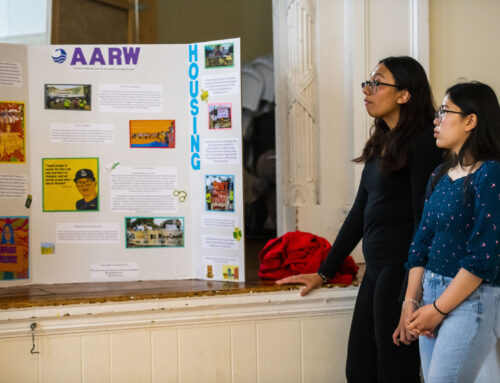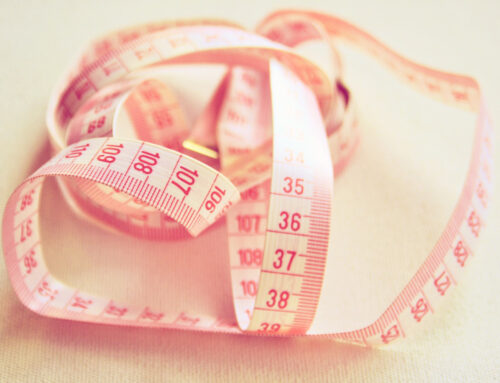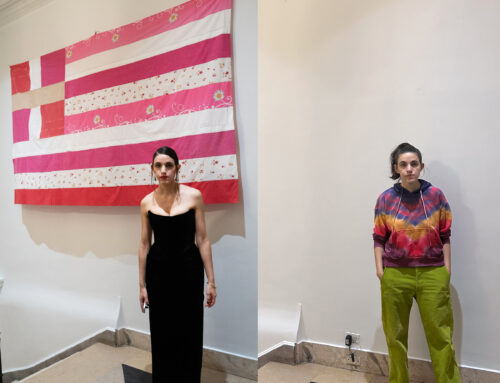
I recently realized that being described as “nice” can sometimes act as a backhanded compliment.
As a small, Asian-American girl, it frustrates me how quickly people make assumptions about my character. One look at my dark hair and narrow eyes, and I become the “sweet” girl, the “cute” girl, the “nice” girl; reduced to the projections of myself that others see.
Though I didn’t realize it until much later in my life, this had a profound effect on my childhood. Growing up, it was always easier to fall in line with the stereotype built around me, and so for the majority of my childhood, I played my allocated role of the shy, docile, rule-following girl.
All of the women in my family are small, and my mom is no exception. But at 4’11, she makes her opinionated, bold presence heard. Struggling to find my own voice, I remember asking her how she was so confident, and her answer has stuck with me to this day.
“I am who I am. I don’t strive to be liked, I strive to be respected.”
Respect. That was what I had been missing. Because through my obsession with being well-liked, I was neither authentic enough to myself nor perceived authentically by others to be respected as a complex individual. It took me sixteen years to come to this realization, and finding the confidence within myself to break out from this stereotype is something that still challenges me today.
However, I wasn’t alone in my identity struggle. The stereotype of Asian Americans as weak and submissive has existed for decades in U.S. history.
The model minority myth is a term commonly applied to Asian Americans, deeming the entire racial group to be “successful” to downplay the role of racism in other minority groups. I couldn’t help but wonder what the true meaning behind this false sense of accomplishment was. What is “success” in the eyes of our society, and how could an entire racial group meet that standard?
The answer surrounds the stereotype which characterizes Asian Americans as hardworking and academic, but also as shy, submissive, and unchallenging to societal construct. Conforming and compliant, we play by the rules as a perfectly assimilated population.
According to NBC News, the term “model minority” originated in the 1960s, and was used to characterize Chinese and Japanese Americans as examples for other minority groups to follow. Though appearing as a compliment, the term is actually extremely detrimental in many ways. Referring to Asian-Americans as the model minority not only discounts the racism, and inequalities encountered in the Asian American experience but also sets racial minorities in America against each other.
While I have to hope that our country is in the process of detaching itself from this mindset, its prominence even in recent American history is hard to overlook. For example, a CNN Article published as recently as 1986, blatantly expressed this stereotype. Deeming Asians the “superior minority,” the article attributed this to their “willingness to adapt to a predominantly white culture.”
This stereotype is especially detrimental to Asian-American women, who have become hypersexualized in American culture, perpetuated through television, movies, and other forms of popular media. Even comedian Amy Schumer, celebrated by Vogue as an “amazing feminist,” joked about this hypersexualization in a past comedy routine. In her skit, Schumer states that Asian women cover their mouths when they speak, because “they know men hate it when they speak.”
The shockingly common objectification of Asian women has contributed towards high standards of physical violence towards Asian-American women; 2.3 times greater than that of Asian-American men, according to NBC News. This intersection between racism and sexism is also reflected in domestic violence statistics. The National Network to End Domestic Violence reported that 41-61% of Asian women will experience domestic violence in their lifetime, a statistic that is higher for Asian women than for other ethnic groups.
Despite being the fastest-growing demographic group in the United States, with a population of over 20 million people and over 20 different ethnic backgrounds, in the eyes of the model minority myth, Asian Americans are all the same. Dutiful and yielding; this all-encompassing stereotype has become the identity of every Asian American.
When I look at where my life has intersected with the minority myth, I now realize that the pressures that I have always felt to be nice stem from deep within our societal construct. Conforming to the stereotype of Asian Americans is something that is praised, so how would my nine-year-old self know to be something else? And furthermore, would our society even see past its biased views of Asian Americans to accept and celebrate each individual for more than their race?
My mom is a hero to me, through her confidence and unwillingness to confine herself to any stereotype. And her powerful words inspire me to demand the respect that I deserve, not just as an Asian-American woman, but as an individual.
Yes, I am a small, Asian girl. But that doesn’t mean that I can’t also be loud and assertive, and deserving of space to be heard and recognized. I hope that one day, individuals in the Asian-American community, as well as myself, will be seen and respected as so much more than “nice.”




Touchstone to self awareness, this article rings truth! Love the thoughtful insight!